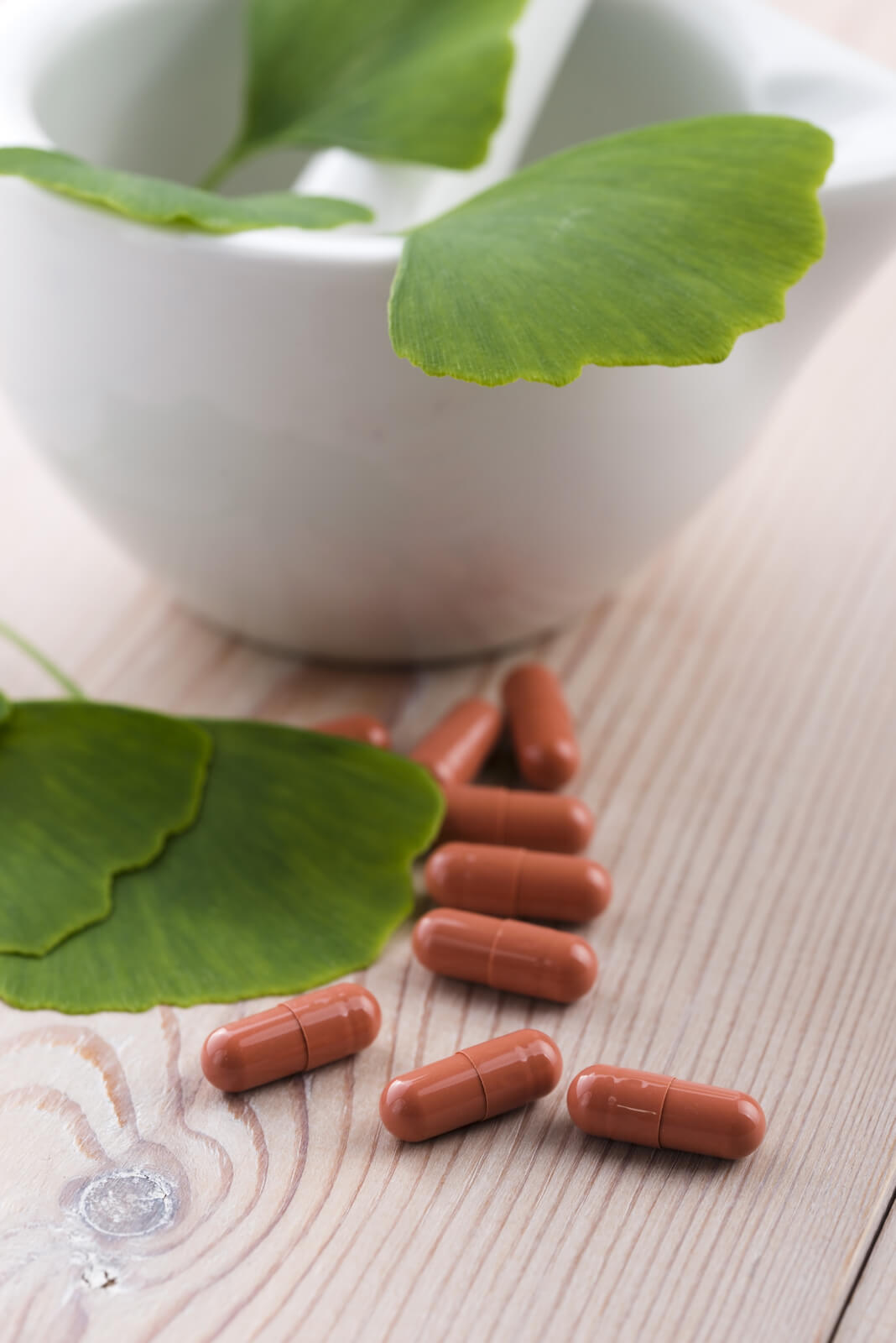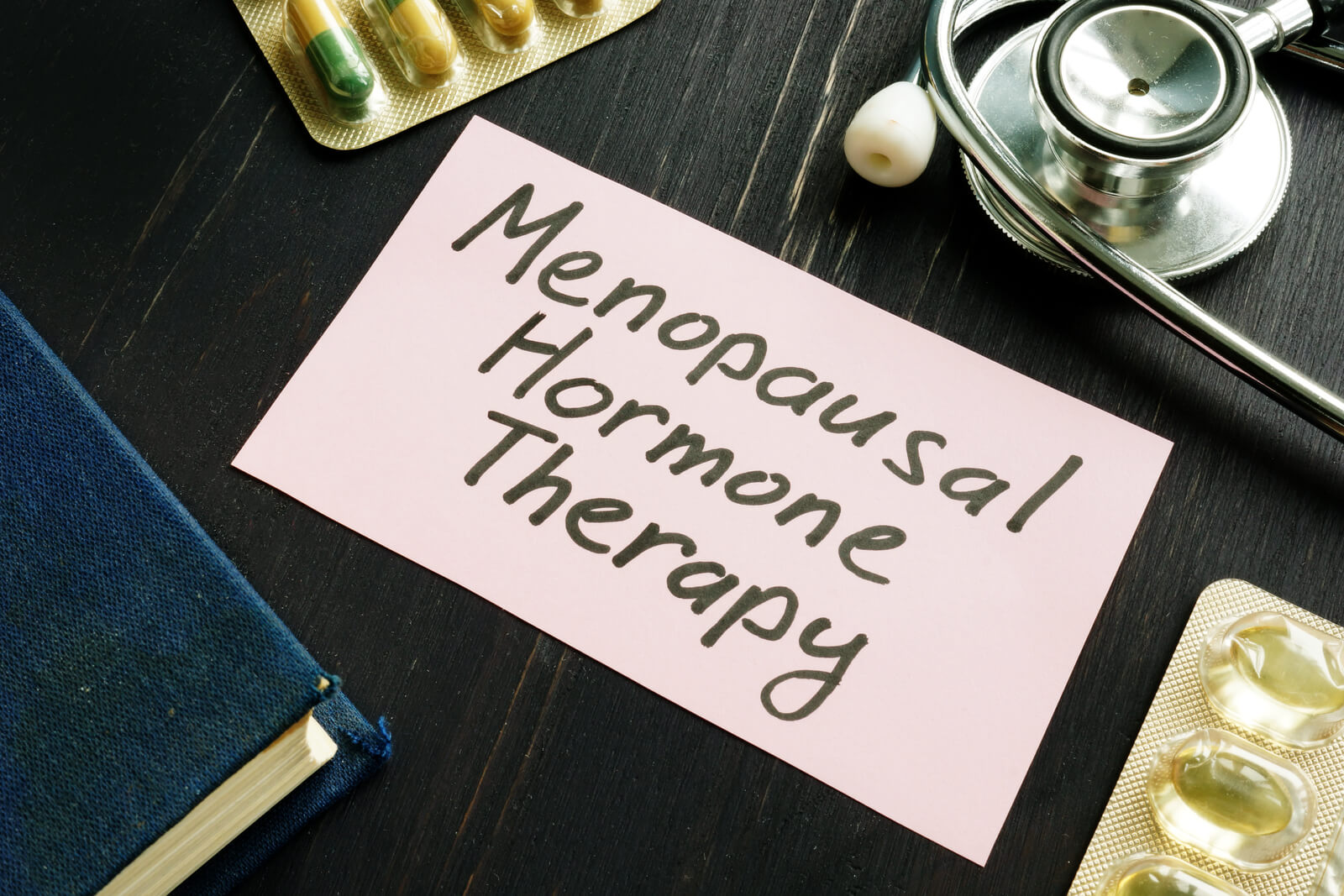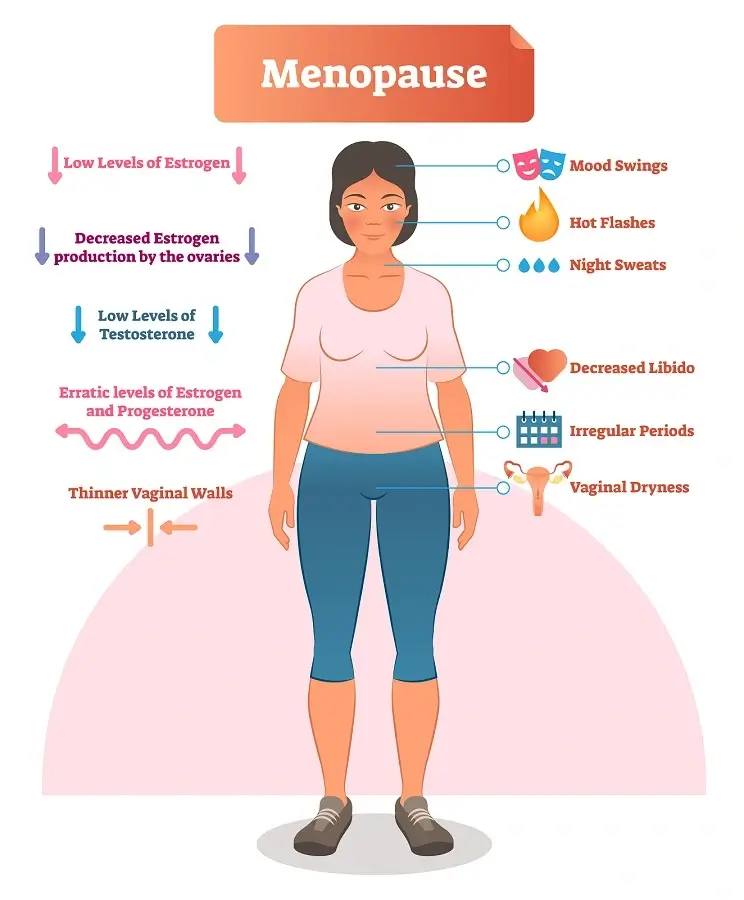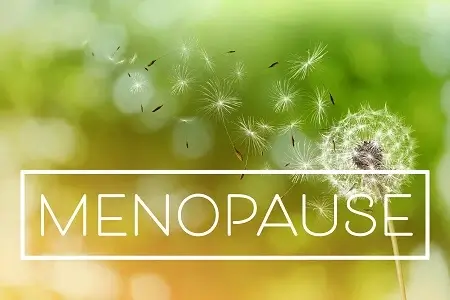
Ginkgo biloba does have some possible uses related to menopause. The herb mimics the body’s own estrogen due to several phytoestrogen (a type of estrogen in plants) compounds that it has. Because the herb can help prevent breast cancer, it may make it a safer substitute for hormone replacement therapy.
The main benefits of ginkgo for menopause and after are:
- Helps improve sexual desire(source 5)(source 6)
- Helps improve mental flexibility after menopause(source 4)
- May help reduce obesity(source 7)
- May help reduce anxiety and depression(source 7)
- Mimics estrogen and Is safer than hormone replacement therapy(source 12)
- May help regulate excess estrogen during hormone replacement therapy(source 12)
How to Take Ginkgo biloba for Menopause
The dosage guidelines for and side effects of ginkgo are given in much greater detail on Herbsey’s article about this topic: Ginkgo biloba Side Effects & Dosage Guidelines.
Essentially you will want to take a standardized extract of this herb orally at least once each day. Quality of ginkgo extracts can vary dramatically, and you should always look for an extract that has an extract ratio of about 50:1; i.e., it took 50 pounds of ginkgo leaves to produce 1 pound of extract.
EGb 761® is a specific type of ginkgo extract (also known by the brand name Tebonin), and appears to be used by a wide array of scientific studies. This extract’s ratio is between 35:1 and 67:1.(source 1) So, it should be very similar to a 50:1 ginkgo extract. Using Tebonin or another quality 50:1 ginkgo extract is a good choice when it comes to what kind of ginkgo to take.
The German Commission E, part of the German government’s Federal Institute for Drugs and Medical Devices, helps give advice and recommendation to this organization. Commission E recommends 120 mg to 240 mg of ginkgo extract 2 to 3 times a day.(source 2)
Make sure you check out our page on side effects of this herb, because problems can occur. And, if you are unsure if it would be safe, make sure you consult a medical professional. Again, you can get the whole story on our article: Ginkgo biloba Side Effects & Dosage Guidelines.
Naturally Defeat Menopause Symptoms
If you’ve tried everything, and seen the same old menopause advice; Ms. Julissa Clay, a university medical researcher, invested over 850 hours developing her own natural solution to menopausal symptoms. It works for about 95% of the women who try it.
Find out the unique way Ms. Clay freed herself from these symptoms; backed by a 60 day, 100% money back guarantee.

Ginkgo biloba’s Effects on Menopause
A 2010 study in Maturitas(source 3) discussed alternative therapies for menopausal women. One of the alternative therapies reviewed was ginkgo.
The study reviewed two previous studies on postmenopausal women found no significant effect on memory, sustained attention, mood, or sleep problems. The women in the study took a standardized extract of ginkgo for either 1 week or 6 weeks.
A 2005 study in the Journal of Psychopharmacology(source 4) looked at postmenopausal women and how ginkgo would improve cognitive function.
The study divided the women into two stages: stage 1 women were an average age of 55 years and stage 2 women were an average age of 61 years. The women were given either one 120 mg dose of standardized ginkgo extract or placebo for 6 weeks.
The study found that stage 1 women saw no benefits from taking the extract. Women in stage 2 showed significant benefits only in the test of mental flexibility.
A 2017 study in the International Journal of Women’s Health and Reproduction Sciences(source 5) found that ginkgo improved sexual function in postmenopausal women.
A 2014 study in the Iranian Journal of Nursing and Midwifery Research(source 6) investigated if ginkgo could improve sexual function in postmenopausal women. 80 healthy female volunteers participated in the study. Those who took ginkgo received a 120 mg or 240 mg daily dose for 30 days.
This study found that sexual desire was significantly improved in women taking the ginkgo extract compared to women who didn’t take it.
A 2021 study in Scientific Reports(source 7) investigated how ginkgo would affect rats who had their ovaries removed. The study found that the extract was able to reduce obesity and improve lipid profile and behaviors that indicated anxiety and depression.
End Menopausal Weight Gain
Deborah Murtagh is an international weight loss coach, avid writer and researcher, and founder of several best-selling weight loss programs with thousands of clients in over 48 countries.
Learn Deborah’s ideal plan for losing weight during menopause from a woman who struggled her entire life with weight gain.
Ms. Murtagh’s program comes with a 60 day, 100% money back guarantee.

Ginkgo biloba Mimics Estrogen
To understand how ginkgo mimics estrogen, it is important to learn about estrogen receptors in cells; which are what estrogen interacts with to stimulate certain types of behavior from the cells. Before we discuss how ginkgo can interact with these receptors, this topic will be briefly explained.
A 2014 study in the journal Steroids(source 8) discussed estrogen receptors. According to this study, the physiological functions of estrogen and phytoestrogens are largely due to the fact they act on estrogen receptor alpha (ER-α) and estrogen receptor beta (ER-β).
So what are ER-α and ER-β? They are proteins cells have that can bind with estrogen-like chemicals and produce an effect on the cell.
Cell receptors are proteins that are inside or on the surface of a cell which can attach (bind) to a chemical messenger known as a ligand. Ligands are produced by cells to signal to other cells or signal to themselves. When a cell receptor binds to a ligand, it produces an effect on the cell.(source 9)
Specifically, when the cellular receptors ER-α or ER-β are activated this causes DNA transcription (the process of an RNA copy of DNA being made; this RNA copy is then used in the cell to create specific proteins) of specific genes.(source 8)
ER-α and ER-β are found in many different cells in the human body. The 2014 study in Steroids summarized where these receptors can be found:
In humans, both [ER-α and ER-beta;] are expressed in many cells and tissues, and they control key physiological functions in various organ systems, such as reproductive, skeletal, cardiovascular and central nervous systems, as well as in specific tissues (such as breast and sub-compartments of prostate and ovary).
Steroids 90 (2014): 13-29
Dr. John Herzog (MD)
Dr. John Herzog, a "survival surgeon" from Maine explains what home remedies work best in a crisis situation.
This may be important in the event you require first-aid or are in an emergency situation without easy access to a hospital. Dr. John Herzog has assembled a large collection of home remedies for such scenarios.

How Ginkgo biloba Interacts with Estrogen Receptors
A 2004 study in Life Sciences(source 10) explained how ginkgo extract interacts with estrogen receptors. According to this study, ginkgo contains flavonoids like quercetin, kaempferol, isorhamnetin. These flavonoids bind with ER-α and ER-β receptors.
Flavonoids are plant chemicals that serve as pigments for plants. They are found in vegetables, roots, stems, bark, grains, tea, and wine. Additionally, they can have a variety of health benefits.(source 11)
The 2004 Life Sciences study concluded that ginkgo extract may be able to be used as an alternative to hormone replacement therapy due to its ability to bind with ER-α and ER-β. It was assumed that the estrogen mimicking quality of this extract was due to its major flavonoid components (quercetin, kaempferol, isorhamnetin).
Ginkgo’s Phytoestrogens & Cancer Risk

As you may know, hormone replacement therapy can carry some risks. This is due to there being an elevated risk for breast and endometrial (the lining of the uterus) cancer for women undergoing this therapy. For many, the risks of hormone replacement therapy outweigh the benefits.
But, do the phytoestrogens (plant chemicals that mimic the body’s estrogen) in ginkgo offer a safer alternative to standard hormone replacement therapy?
To help answer this question, a 2006 study in The Journal of Steroid Biochemistry and Molecular Biology(source 12) sought to determine if ginkgo extract was able to reduce women’s risk for developing breast cancer.
To summarize, the study found that ginkgo helps to prevent breast cancer and regulates estrogen’s effects in two ways. Let’s discuss this study in more detail.
The study tested to see how ginkgo would induce cells with estrogen receptors to multiply, as such cells multiply in the presence of estrogen. Estrogen does this to cells by binding to ER-α, ER-β, and a G protein-coupled membrane receptor.(source 13)
The study found that the ginkgo extract stopped the effects of estrogen on cells with estrogen receptors when the amount of estrogen was high. On the other hand, ginkgo extract stimulated cells with estrogen receptors in the presence of low concentrations of estrogen. Thus, when not much estrogen is present, ginkgo will act like extra estrogen. When there is a lot of estrogen, ginkgo will block the effects of the estrogen.
The study found that this effect of ginkgo possibly was not fully related to estrogen receptor binding but may have been through some other mechanism.
The study concluded that ginkgo extract might be able to be used in hormone replacement therapy while at the same time helping to prevent breast cancer (the scientific term for this is a "chemopreventive effect").
Claire Goodall’s Amazing Guide
Clair Goodall is a bee-obsessed, natural medicine convert from Minnesota (USA). And, she does keep bees!
Clair has created 350+ page book documenting how to replace the toxic products and medications in your home with healthier, all-natural alternatives.

A Worry Free, Natural Solution for Menopausal Symptoms

The daunting risks of hormone replacement therapy (HRT), are a reason many women seek out natural alternatives. Julissa Clay was a woman with the same mindset. Although she successfully navigated the symptom perils of perimenopause (the time frame your body starts transitioning into menopause), something unfortunate happened.
Due to problems with her uterus, she had to have it surgically removed. Thankfully, as Ms. Clay says about her surgery: "Luckily, everything went fine and I was lucky enough to walk out of the hospital with nothing but a few puncture wounds from a state-of-the-art surgery."
Yet, soon after entering into surgical menopause she found herself learning what her mother told her hot flashes first hand; plus, her desire for intimacy, ability to keep weight off, and energy reserves were significantly impaired.
She would soon find out these were not residual effects of surgery, this is what many women go through during this important time in their lives.
After trying a host of treatments and internet searches, not to mention eating more soy tofu than a Japanese vegetarian, she hadn’t found a workable solution.
But, Julissa had a secret weapon in her corner: She had spent 5 years as a medical student at a prominent university. So, she knew how to do her research.
Ms. Clay discovered that although you can’t cure menopause, it’s a natural process women go through, you can put a stop to the symptoms that get in the way of quality of life.
Also, Ms. Clay, after learning how to address the symptoms of menopause delved deeper into learning about natural medicine; the end result being so she could synthesize a natural treatment plan that would not keep her up at night worrying about unwanted side effects.
After over 850 hours of research, testing, and refining, Ms. Clay developed a fast and safe solution for menopause symptoms. After testing her program in controlled conditions, 95.4% of women saw it work. And, the 4.6% that it didn’t work for, they lost weight and had more energy as a result.
It may sound too good to be true, but treating menopause is a big business; and, there is little attention probably made to halting the influx of cash by 95.4%.
And, if you want to investigate Ms. Clay’s treatment plan, you can know it is backed by her U.S.A. based publisher’s 60 day, 100% money back guarantee.
If you’d like to learn more about Ms. Clay and her exceptional program, you can find out much more at Julissa Clay’s official program website.
About the Author
Geoff Kent is a natural medicine enthusiast who has been researching and writing about natural medicine since 2008. Geoff is primarily a web developer, but also researches and authors written and video content about natural health. Geoff has a bachelor’s degree in Management Information Systems from the University of Northern Iowa.
More on Geoff KentImportant Disclosures & Disclaimers
It is important to use the information you find on Herbsey.com in the right way. Also for legal reasons, these disclaimers and disclosures are necessary. For further information about each, feel free to click the link provided to the page on this website that provides more information.
Medical Disclaimer
The information on this website is not a prescription for anyone. This information is for informational or educational purposes only, and is not a substitute for professional medical advice or consultations with healthcare professionals.
Advertisement Disclosure
Some of the links provided on this article and website are affiliate links. If you purchase a product after clicking on these links, Herbsey.com will earn a commission. Herbsey.com promotes various products through advertisement and text links. For more information: Our Advertisements.









